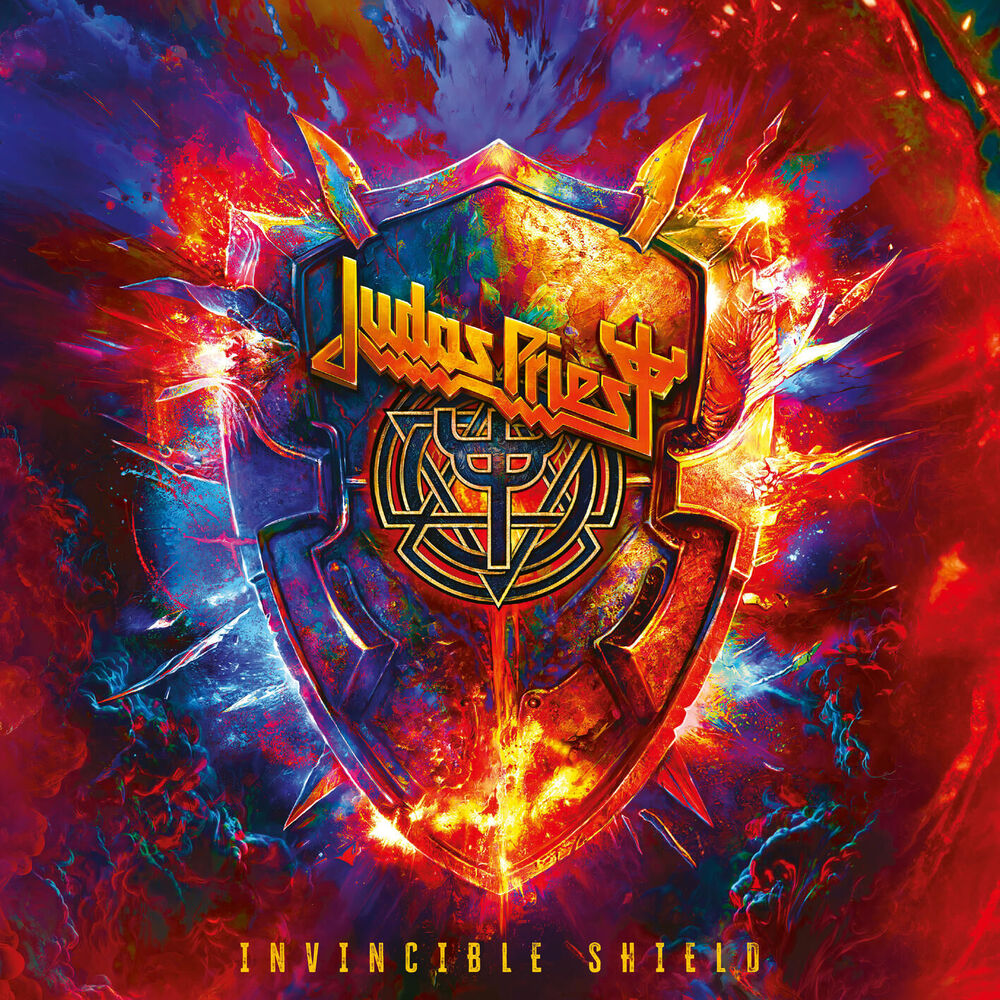 |
Country: UK
Style: Heavy Metal
Rating: 6/10
Release Date: 21 Feb 2025
Sites: Facebook | Instagram | Metal Archives | Official Website | YouTube
Given that the drummer in Airforce is Doug Sampson, formerly of Iron Maiden, who provided the beat on The Soundhouse Tapes, it probably shouldn't surprise that there's a heck of a lot of Iron Maiden to be found in Airforce, right from the outset in Among the Shadows. However, it's most obvious in the air raid siren vocals of Portuguese singer Flávio Lino rather than the music behind him, which is just as often reminiscent of Judas Priest. The only time Lino doesn't sing like Bruce Dickinson is in mellower sections, like in Lost Forever, when he shifts more towards a Geoff Tate style. However, the instrumentation alternates, stalking like Priest but galloping like Maiden.
Frankly, the derivative sound is the most obvious drawback, because a lot of people will only hear Maiden (and Priest) and dismiss the band because of that. They may miss the fact that they were around back then, even though they didn't release an album until 2016. Airforce were formed in 1987, at least under that name, but their roots go back to 1979 with the band EL-34, the original home of lead guitarist Chop Pitman and bassist Tony Hatton, who formed Airforce with Sampson and his brother Sam on vocals after the split of EL-34 . When Sampson left in 1999, it was EL-34's Mick Dietz who took over until Airforce split in 2001. So they were forged out of the same steel.
Given how inexorably the album moves towards Iron Maiden, not least through the inclusion of a cover, Strange World, to wrap things up, it actually starts out more akin to Priest. They're easily the most obvious sound in the opener, Among the Shadows, though Lino's vocals are taken right from the Dickinson playbook. Life Turns to Dust is even more Priest, slower but harder with real emphasis. It's a stalker of a song and, even with those Dickinson vocals, the structure feels more like what Rob Halford might sing.
There's Priest in The Fury too, but it's when the Maiden starts to take over, not least through its bouncy riff which seems achingly familiar. I can't quite tell if they lifted it from an actual Maiden song or it's so close to that style that it feels like that. It's close to Transylvania, that's for sure, but it's not quite the same. Perhaps because it tries to merge those Priest and Maiden styles, it comes across like it's not quite fully formed. However, it's the only song I'd say that about, as the longer the album runs the more comfortable it feels in the Maiden sound.
Cursed Moon is more Maiden. Sniper is very much Maiden, built from a slow gallop. And, after a brief interlude with the partly mellow Lost Forever and those notes of Queensrÿche, the second half dives right into Maiden with a vengeance. Heroes and Obliterated especially flow together and, while they may be highly derivative, it's effortlessly derivative enough that it's easy to fall right into it. It's telling that Obliterated feels as much Maiden as Heroes, even though there are no vocals to emphasise the connection. It's a very tasty instrumental.
And with acknowledgement to presumably cinematic fare in Westworld and Hacksaw Ridge, two decent but lesser songs here, I should jump forward to that cover. Sampson never played on a lot of Maiden tracks, at least in the studio, only the originals of Iron Maiden, Invasion and Prowler, on The Soundhouse Tapes, and Burning Ambition, the B-side of Running Free, so it would always be interesting to hear him on another track. Oddly, it's feels like a slower cover, even though it's also done with quicker. The original lasts five and a half minutes, but this is wrapped by the five minute mark.
Unsurprisingly, this is going to be best recommended to fans of early Maiden, but there's value here beyond what sounds somewhat like a cover band performing largely original songs. I got a real kick out of the power in Life Turns to Dust, thoroughly enjoyed the instrumental Obliterated and relished in the galloping stalk of Sniper. Lost Forever is Airforce's attempt to do something a little more original and it's fair to say that it works, alternating between mellow and powerful, a real journey of a song.
What matters is that they're creating new music. Having not released anything during their first fourteen year incarnation from 1987 to 2001, not even getting a demo onto the Friday Rock Show via The Rock War, they got down to business late into their second. They reformed in 2008, Pitman leading the way and Sampson following two years later. Hatton rejoined in 2016 and that's when they finally released their debut album, Judgement Day. Strike Hard followed four years later in the COVID times, with a live album a year later, and this arrives four years after that. I'd be very happy to hear more from Airforce, even if they can't escape Iron Maiden's shadow but especially if they can.

















